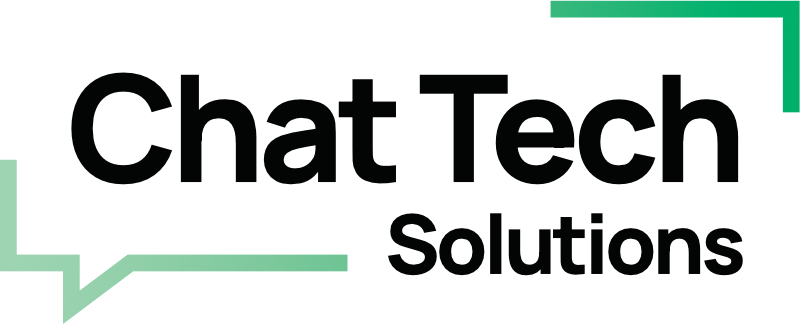
Best Leaders Know Just Enough To Be Dangerous (In Every Corner of Their Business) 🚦
Some leaders have “the look.” You know the one: part calm captain, part quietly curious student. They might not be the project wizard 🤓, spreadsheet ace 🧮, or sales shark 🦈—but they’ve got an uncanny knack for spotting an iceberg before anyone else, and somehow always steer toward opportunity.
After years of partnering with businesses—some thriving, some doing the paperwork shuffle at midnight—I can say this: The best leaders always know just enough to be dangerous in every division. Not experts. Not micro-managers. Dangerous. (The good kind!)
Before we dive in, a word on “dangerous.” Here, it means knowing the basics well enough to ask better questions, sidestep disaster, and spot the next big win—without drowning in jargon soup or running your ship aground. 🛳️
Why “A Little Bit About Everything” Is Your Real Edge 🎭
Running a business isn’t a solo violin act (unless you are a solo violinist—in which case, play on). For the rest of us, it’s a megaship. Success isn’t about being the world’s best at marketing, finance, or tech. It’s about bringing the pieces together—knowing what questions to ask, when to course-correct, and how to keep the crew rowing the same direction. 🚢
You can’t delegate your ship’s destination, and you can’t row it alone. But you can know enough about every department to steer with a steady hand—and dodge those “whoops, nobody told me” moments that make for good stories, but bad business.
Let’s take a tour. For each division, here are 2–3 “dangerously useful” questions—with a plain-English “Why”—that every leader should have up their sleeve. There’s always more, but this is your permission slip to start poking your nose in everywhere.
Sales: Turning Conversations Into Opportunity 💬
- What are the most common objections or concerns we hear from prospects—and what are the proven approaches to overcome them?
Why: Implementing probing questions lets you elevate your “pitch,” answer doubts before they turn to ghosting 👻, and win the right clients with trust (not Jedi mind tricks). - How do we track and measure our pipeline to forecast revenue and prioritize the most valuable opportunities?
Why: A clear pipeline is like checking the fuel gauge before a road trip—know where you’re headed, when to gas up, and which pit stops are worth your time. ⛽ - What is our average close rate, and what are the main reasons deals are won or lost?
Why: Know what’s working (and what isn’t), so you can fine-tune your strategy, close more deals, and retire your stress ball collection. 🎯
Marketing: Making Every Dollar (and Message) Count 📣
- How well defined is our ICP (ideal client profile), and what specific steps are we taking to speak to their pain points and dreams?
Why: A sharp ICP means you can stop shouting into the abyss and start whispering sweet value into your ideal client’s ear. 💌 - Which marketing channels are delivering real results—not just clicks, but revenue or raving fans—and how does this stack up to the top players?
Why: You can’t improve what you don’t measure—and you can’t invest in results if you’re only chasing vanity likes. Pros know their numbers (and what matters). - What’s our Unique Selling Proposition (USP), and how are we making sure clients actually hear what sets us apart?
Why: A clear USP is like a megaphone at a parade—cuts through the noise and gives clients a reason to wave your flag. 🎺
Finance: Making the Numbers Work for You 💸
- How do our quarterly Profit & Loss (P&L) statements look, what’s our average net profit margin, and how does that compare to the best in our field?
Why: Peeking at your P&L should not require an exorcist. Spot your strengths, catch red flags before they bite, and set smarter goals—no Ouija board required. - What’s the margin on our most profitable services, and how do our least profitable stack up?
Why: If you don’t know your “best sellers,” you might be selling filet mignon at hot-dog prices—or vice versa! Know where to pour your energy (and when to cut bait). 📈 - What’s our labor cost for the projects we take on most, and are we pricing them right to be both profitable and competitive?
Why: Labor is your biggest lever. Nail your costs and pricing, and you’ll sleep better (maybe even on a mattress that isn’t stuffed with bills). 😴
Operations: Smoothing Out the Bumps ⚙️
- How do we track project progress, deadlines, and deliverables so nothing slips through the cracks?
Why: Reliable tracking means fewer “uh-oh” emails, less hair-pulling, and happier clients. 📅 - Is our process from intake to delivery mapped out clearly—and do we follow it, or keep reinventing the wheel? Where are the bottlenecks?
Why: A clear process brings consistency (plus it’s way better than re-discovering fire with every project). 🚒
- What project management tools or systems should we use to get a bird’s-eye view on projects and people—and how do we set these up to fit our real workflow?
Why: The right tools = fewer surprises, more accountability, and scalable growth (with 80% less yelling). 🛠️
HR/People: Building and Keeping a Winning Team 🏆
- How can we onboard new team members (and say goodbye to others) smoothly and fast—without turning it into a weeks long project?
Why: Streamlined onboarding/offboarding means less stress to make important decisions without dread and more time for actual leadership (or coffee). ☕️
- How do we check in with team members—and keep them fired up about our mission?
Why: Regular, meaningful check-ins help keep talent, surface fresh ideas, and make the workplace a place people want to show up (even on Mondays).
- Are our job descriptions and expectations clear? How do we give real feedback?
Why: Even if someone wears six hats, clarity (with feedback) means less confusion—and more confidence for everyone. 🧢🎩🎓
Legal & Compliance: Shields Up, Surprises Down ⚖️
- Do our contracts protect us from scope creep, squabbles over deliverables, and make everyone’s role crystal clear?
Why: Skip the legalese headaches: clear, simple language keeps trust high and mishaps low. (Pro tip: “We discussed it” ≠ contract!)
- Are our agreements covering the real issues we’ve faced (or heard horror stories about) and are they enforceable—without scaring away clients?
Why: A fair agreement keeps everyone protected and sleeping well—but too much “fine print” will make clients run for the hills. 🏃♂️💨
- What other agreements or add-ons (“riders”) should we have—and when do we need them?
Why: NDAs, non-competes, and more—they’re not just for large corporations. They help protect your turf and tell others you run a tight, professional ship.
Technology: Turning the Engine Room from Rowboat to Luxury Yacht 🖥️
- Do we have a clear list of all our tech “moving parts”—with each one owned by the right person or partner?
Why: Assumptions = chaos. Nobody wants a “whose job was that?” moment during a meltdown. 🔌
- Is there a user-friendly tech product or service out there that could save us big time or money in how we do (fill in the blank)?
Why: The biggest missed chances come from not getting curious about how tech can squash growing pains and cut out tedious work altogether. Try new things—your future self will thank you! 🤓
- Is our tech actually helping us—or holding us back? And does our tech partner “get” what we do (and can they help with what’s next)?
Why: You’re only as strong as your weakest link—or slowest laptop. You can turn your technology from something that hums along to your biggest ally and competitive edge. 🦾
Final Thought (With a Wink) 😉
No business leader can be an expert at everything. But the best ones? They know just enough to be “dangerous”—asking sharper questions, connecting the dots, and keeping the ship sailing with confidence (often with a smile).
Don’t delegate your destination—or try to captain alone. Success means knowing enough, across the whole business, to steer through squalls, calm, and surprise icebergs (occasionally with a decent punchline). 🧭
👉 Next Step: Ready to get “just dangerous enough” to grow with confidence?
Let’s hop on a call and map out your essential questions—together. Your future self (and crew) will thank you.




